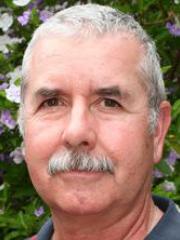Professor John Gaughan

Teaching and Development
- ANIM2021 Thermal Adaptation of Animals
- ANIM3046 Animal Breeding and Genetics
- ANIM3045 Livestock Enterprise Management
- ANIM2045 Grazing Animal Production
- ANIM2044 Intensive Animal Production
Researcher biography
John is an Honorary Professor in the School of Agriculture and Food Sustainability at The University of Queensland, Gatton, Australia. John has over 190 publications, in the areas of; impacts of harsh climatic conditions on animals, specifically the physiological responses to heat stress in beef cattle, dairy cattle, horses and working dogs, modeling the impact of climate change on animal production (beef, dairy, sheep), and impact of heat on ruminant nutrition. He led an international team which developed new thermal stress indices for livestock, a heat stress risk assessment model for feedlot cattle, and is currently developing a heat stress risk assessment model for dairy cows. His worked has largely focused on gaining an understanding of animal’s physiological responses to acute and chronic heat stress, the development strategies to ameliorate the impact of high heat load, and the likely impact of future climatic conditions on animals (domestic and wildlife).
Researcher biography
John is a Professor in the School of Agriculture and Food Sustainability at The University of Queensland, Gatton, Australia. John has 178 publications, in the areas of; impacts of harsh climatic conditions on livestock, physiological responses to heat stress, modeling the impact of climate change on animal production (beef, dairy, sheep), animal welfare and ruminant nutrition. He is part of an international team which has recently developed new thermal stress indices for livestock, a heat stress risk assessment model for feedlot cattle, and is currently developing a heat stress risk assessment model for dairy cows, horses and working dogs. His worked has largely focused on gaining an understanding of animal's physiological responses to acute and chronic heat stress, the development strategies to ameliorate the impact of high heat load, and the likely impact of future climatic conditions on animals (domestic and wildlife). John is also part of a team investigating greenhouse gas abatement strategies for cattle, and has on-going collaborative projects with colleagues in the USA and India.
